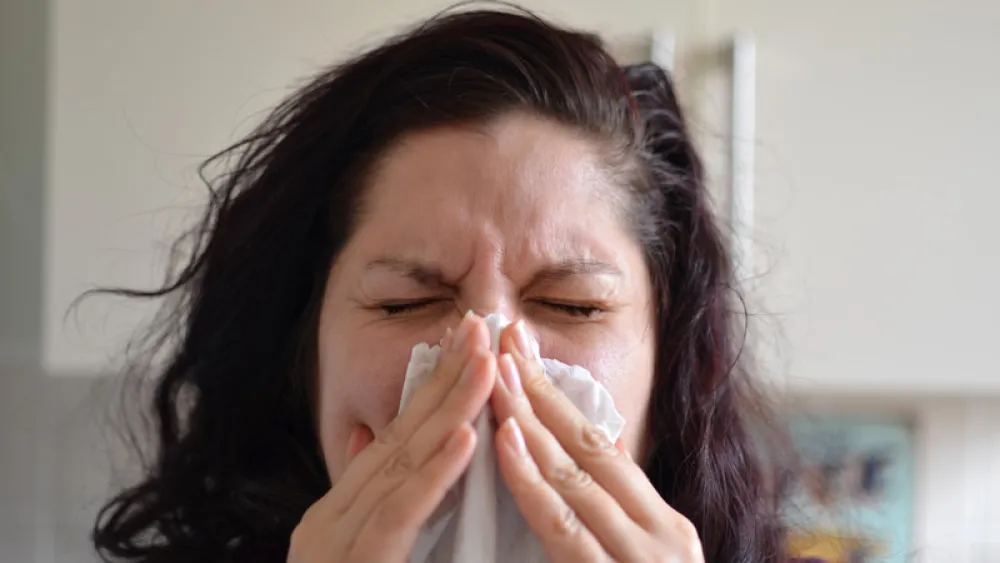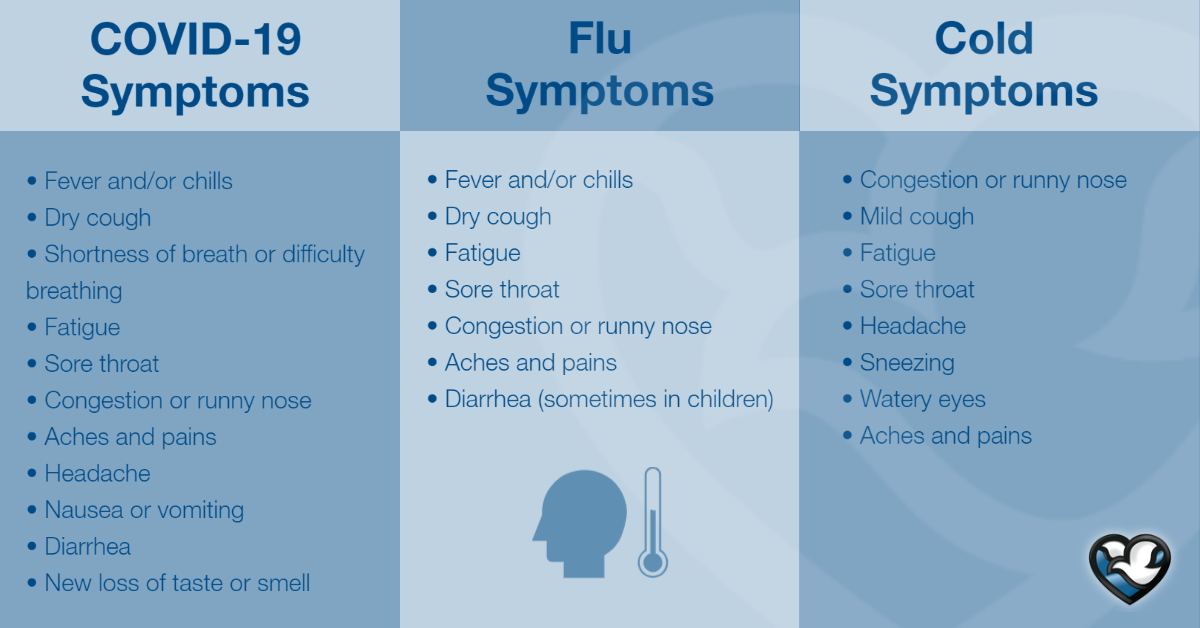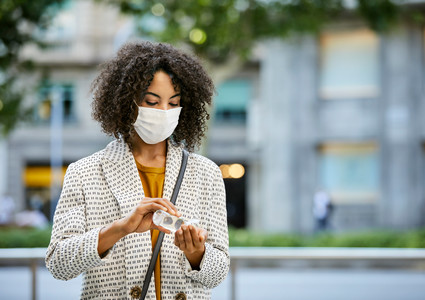Today's Medicine
Is It COVID-19, the Flu or the Common Cold? How to Tell and When to Act
Published: Nov. 4, 2020

COVID-19, Flu and Cold Symptoms
When looking at potential symptoms of COVID-19, the flu and a cold, there appears to be the most overlap between COVID-19 and the flu. However, some COVID-positive individuals only ever feel mild coldlike symptoms. It’s important to know the symptoms of all three viruses.

Seek medical care immediately if you feel any of the below combined COVID-19 and flu symptoms:
- Shortness of breath or difficulty breathing
- Persistent pain or pressure in the chest or abdomen
- Sudden confusion or dizziness
- Severe vomiting
- Bluish lips or face
- Inability to wake or stay awake
- Symptoms that improve but come back with fever and cough
Navigating the Differences
If you’re questioning what your symptoms mean and whether you should get tested for COVID-19, call your provider. Here’s other helpful advice as you navigate your next steps:
- Loss of taste or smell appears to be a symptom unique to COVID-19. If you’re experiencing either of these, call your provider immediately and get tested for COVID-19.
- If you’re feeling symptoms of any kind, immediately isolate from others – even in your home. Wear a mask, socially distance and practice good hand hygiene. COVID-positive individuals are contagious longer than people with the flu.
- Know your baseline. Remember how you typically feel when you have a cold, and ask yourself if you’re feeling worse than usual.
- Cold symptoms alone may not warrant a COVID-19 test, but that depends on many factors. For example, do you have cold symptoms and know you were exposed to someone with COVID-19? Then you should get tested.
- If you are an older adult, have an underlying medical condition or are pregnant, treat both COVID-19 and the flu seriously. You are at higher risk for severe illness and worse outcomes from both viruses.
- Young children are more likely to experience flu symptoms than COVID-19 symptoms. If your child is ill, stay calm and remind yourself that kids catch bugs all the time. Then call your pediatrician to discuss next steps. Children are not immune from COVID-19 and in rare cases can later suffer from Multisystem Inflammatory Syndrome in Children.
How to Protect Yourself
The COVID-19 pandemic is an urgent crisis and understandably top of mind this winter. But while safeguarding against COVID-19, don’t underestimate how dangerous the flu can be as well. The Centers for Disease Control and Prevention currently estimates that in the 2019-2020 season, the flu caused 38 million illnesses, 18 million medical visits, 405,000 hospitalizations and 22,000 deaths. With a similar flu burden this year, health systems and health care workers would be further strained as they continue to treat COVID-19 patients.
 So what can you do? You can protect yourself from COVID-19, the flu and the common cold by:
So what can you do? You can protect yourself from COVID-19, the flu and the common cold by:
- Wearing a mask. Mask in public places and when you’re with anyone outside your immediate household. This means family and friends who don’t live with you – even if you’re in your own home.
- Socially distancing. Remain at least 6 feet away from people not in your immediate household. Studies have shown that some droplets can travel farther than 6 feet, and aerosolized COVID-19 particles can remain in the air for some time.
- Practicing good hand hygiene. Wash your hands with soap and water often for at least 20 seconds, and avoid touching your face. When unable to wash your hands, use hand sanitizer that contains at least 60% alcohol.
- Avoiding the Three C’s. Avoid crowded places, close contact and confined spaces.
- Practicing self-care. This means taking care of both your mental and physical health.
We know you’re tired. Pandemic fatigue is real and leads to people taking dangerous risks. But we’ve seen as a community that when we let our guard down, the results are debilitating and deadly. By following the right precautions and listening to our bodies, we can make this a mild cold and flu season and help prevent the spread of COVID-19.
More Resources
- Get the scientific truth about COVID-19 and herd immunity.
- Learn the facts about the flu vaccine.
- Read what we know now about COVID-19 and pregnancy.
- If you’re experiencing fear, anxiety, sadness or depression, call the Methodist Emotional Support Line.


